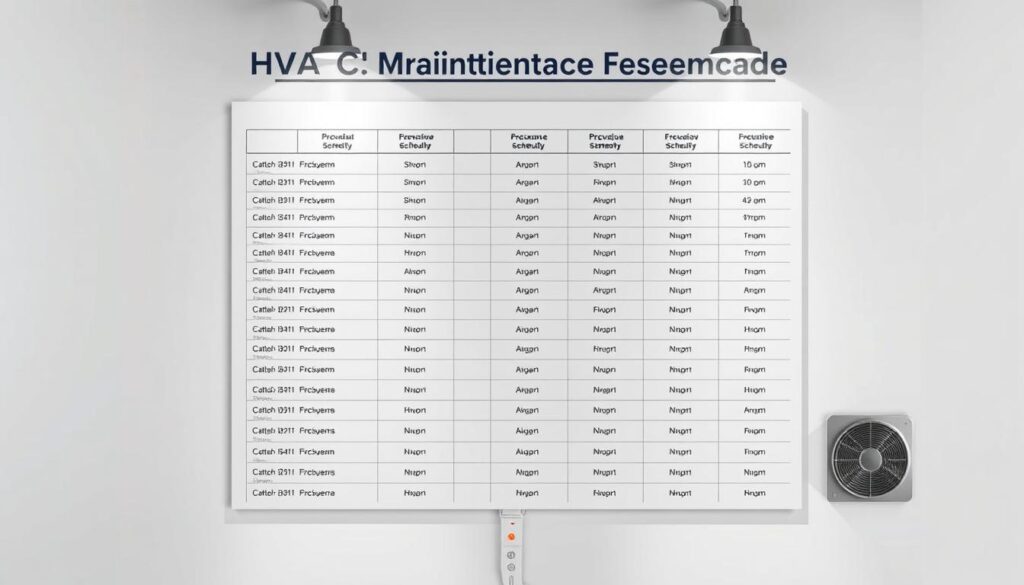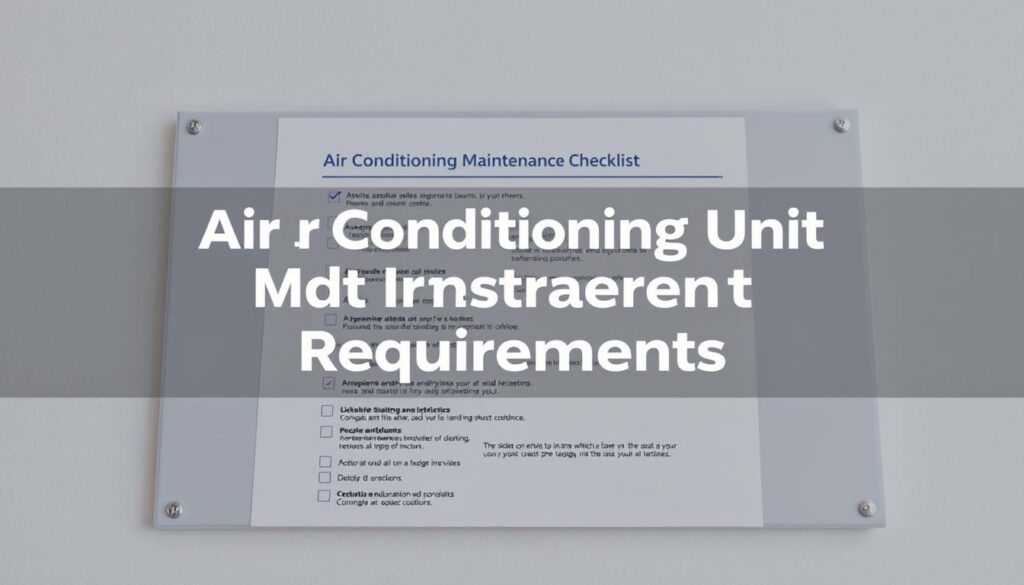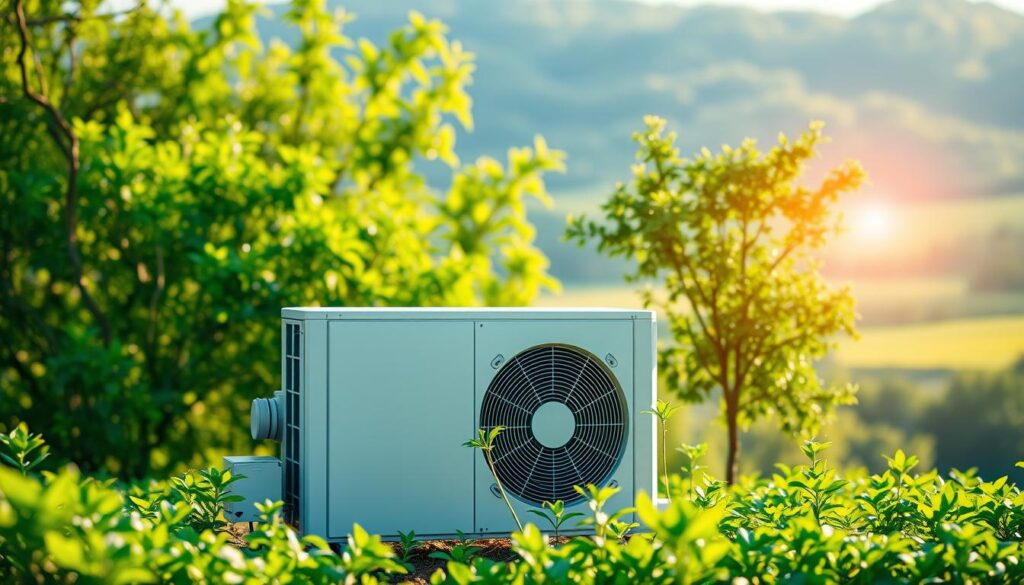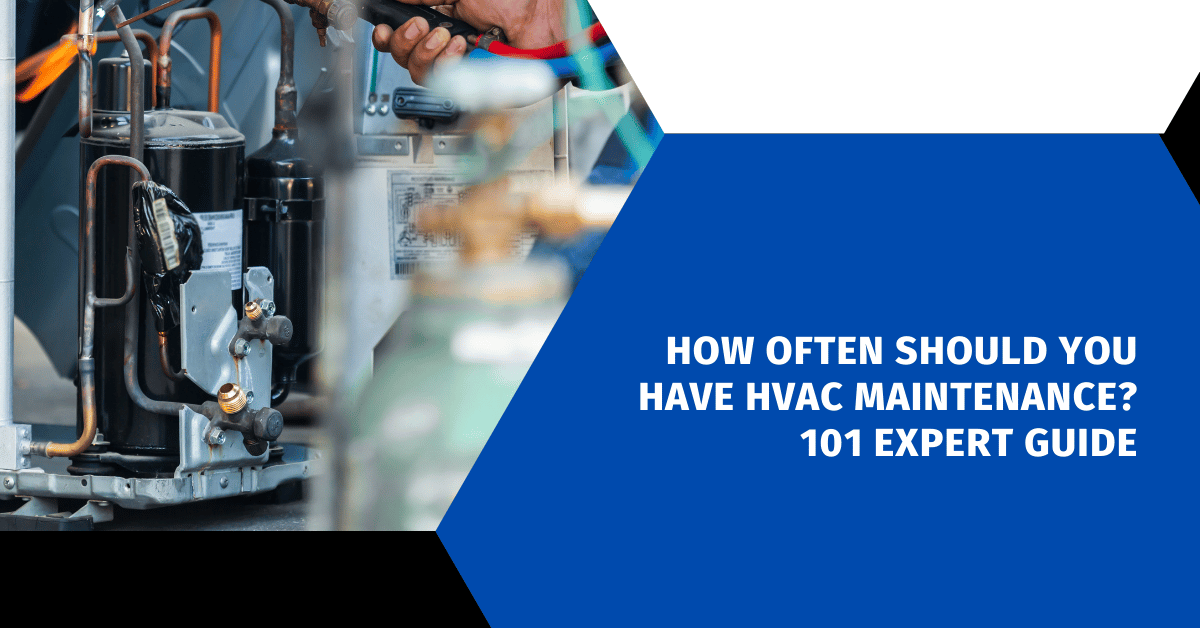Affiliate Disclosure
HVAC Guide Guys is a participant in the Amazon Services LLC Associates Program, an affiliate advertising program designed to provide a means for sites to earn advertising fees by advertising and linking to Amazon.
How Often Should You Have HVAC Maintenance? Are you unknowingly shortening the lifespan of your home’s most critical comfort system? Proper HVAC maintenance frequency can mean the difference between a smoothly running system and costly unexpected breakdowns.

Your heating, ventilation, and air conditioning (HVAC) system is a big investment in home comfort. Knowing how often to have HVAC maintenance is key to keeping it running well, efficiently, and lasting longer.
Experts say you should get your HVAC system checked every year. Air conditioners and furnaces need different maintenance times to work their best all year. Being proactive helps avoid sudden failures and keeps your system running at its best.
Key Takeaways
- Annual maintenance is essential for HVAC system health
- Separate maintenance schedules exist for cooling and heating units
- Regular service prevents unexpected system failures
- Maintenance helps maintain energy efficiency
- Professional inspections can identify problems early
Table of Contents
Understanding the Importance of Regular HVAC Maintenance
Your HVAC system is key to your home’s comfort and energy use. Regular maintenance is not just a suggestion. It’s essential for keeping your system running well and saving money.
“A well-maintained HVAC system can save you up to 15% on energy costs and prevent unexpected breakdowns.”
The Role of Preventive Maintenance in System Longevity
Regular care can make your HVAC system last longer. By getting routine checks and maintenance, you can:
- Prevent early system failure
- Spot problems before they cost a lot to fix
- Keep your warranty valid
- Keep your home comfortable
Impact on Energy Efficiency and Performance
Keeping your HVAC system in good shape is vital for its performance. If you ignore it, your system could lose up to 5% efficiency each year. This means higher energy bills and less comfort.
Cost Benefits of Regular Maintenance
Regular maintenance might seem like an extra cost. But it actually saves you money over time. A well-kept HVAC system:
- Uses less energy
- Costs less to repair
- Lasts longer
- Works at its best
Remember, your HVAC system is a big investment in your home. Keeping it in good shape through regular maintenance is both wise and practical.
How Often Should You Have HVAC Maintenance: Basic Guidelines
Keeping your HVAC system in top shape is key for its performance and life span. Experts recommend routine hvac inspections twice a year – in spring and fall. This helps your heating and cooling systems handle extreme weather changes well.
How often you need hvac maintenance depends on a few important factors:
- System age and model
- Usage patterns
- Local climate conditions
- Manufacturer recommendations
Professional HVAC technicians create maintenance plans based on your system’s needs. Newer systems might need less frequent servicing, while older units might need more care.
“Regular maintenance prevents unexpected breakdowns and extends your HVAC system’s lifespan.”
Different HVAC systems have different maintenance needs. Central air conditioning units and heat pumps need thorough checks before the peak seasons. Systems in very harsh climates might need more frequent checks by pros.
Regular maintenance boosts system efficiency, cuts down energy costs, and avoids expensive repairs. Always talk to a certified HVAC pro to create a maintenance plan that fits your system and home.
Explore Our HVAC Shop
Looking for top-rated HVAC tools, parts, and accessories? Visit our shop and find the perfect solution for your needs.
Visit the ShopSeasonal Maintenance Schedule for Optimal Performance
Keeping your HVAC system in top shape is key. It ensures your home stays comfortable all year. By following a seasonal maintenance plan, you avoid sudden breakdowns and make your system last longer.
Regular hvac system checkups are essential. Each season has its own needs to keep your heating and cooling systems working well.
Spring Maintenance Focus
Spring is the perfect time to get your air conditioning ready for summer. Your maintenance should include:
- Cleaning or replacing air filters
- Checking refrigerant levels
- Inspecting outdoor unit for debris
- Testing thermostat functionality
- Lubricating moving parts
Fall Preparation Requirements
When it gets colder, your heating system is more important. Fall hvac tune-ups should focus on:
- Examining heat exchanger for cracks
- Cleaning furnace burners
- Checking carbon monoxide levels
- Verifying electrical connections
- Calibrating thermostat settings
Year-Round Monitoring Tips
Between professional checkups, keep an eye on your system. Simple checks each month can help avoid big repairs. Watch for airflow issues, strange noises, and make sure vents are clear.
Regular maintenance is your best defense against unexpected HVAC failures.
Air Filter Maintenance and Replacement Intervals
Keeping your air filters clean is key for your HVAC system’s health and air quality. Regular checks show that air filters are essential for your system’s efficiency. The lifespan of your filter depends on several important factors.
Different air filters need to be replaced at different times. Your home’s conditions greatly affect how often you should change these filters:
- Standard homes: Replace every 90 days
- Homes with pets: Replace every 60 days
- Homes with allergies or respiratory conditions: Replace every 30-45 days
- Vacation homes or low-traffic spaces: Replace every 6-12 months
Pro tip: Visual inspection is key to determining filter replacement timing.
| Filter Type | Recommended Replacement | Best For |
|---|---|---|
| 1-2 inch filters | 30-90 days | Basic residential use |
| 3-4 inch filters | 6-9 months | Enhanced air filtration |
| 5-6 inch filters | 9-12 months | High-efficiency systems |
“Clean filters mean a happy HVAC system and healthier indoor air.” – HVAC Professionals
Ignoring air filter maintenance can harm your system’s efficiency and raise energy costs. Regular checks during routine inspections can avoid expensive repairs and keep your system running well.
Explore Our HVAC Shop
Looking for top-rated HVAC tools, parts, and accessories? Visit our shop and find the perfect solution for your needs.
Visit the ShopEssential Components of Professional HVAC Inspections
Professional hvac system checkups are key to keeping your home comfortable and efficient. When you book a detailed HVAC preventive maintenance visit, skilled technicians check your system’s important parts.
A thorough professional inspection is more than just looking around. Technicians really get into your system’s performance. They make sure every part works its best.
System Component Evaluation
During hvac system checkups, experts look at several key areas:
- Cleaning fan motors and removing dust
- Inspecting electrical connections for safety
- Checking refrigerant levels and system pressures
- Evaluating overall system efficiency
Safety Checks and Testing
Safety is top priority during hvac preventive maintenance. Technicians do detailed tests to find any risks:
- Electrical system voltage testing
- Carbon monoxide leak detection
- Combustion chamber integrity checks
- Thermostat calibration verification
Performance Optimization Steps
The last part of professional maintenance aims to boost your system’s efficiency. Technicians adjust settings, suggest upgrades, and make sure your HVAC runs at its best.
Regular professional inspections can extend your system’s lifespan and prevent costly unexpected repairs.
Air Conditioning Unit Maintenance Requirements

Keeping your air conditioning unit in top shape is key for its best performance and longer life. Knowing when to get your AC serviced can save you money and avoid sudden breakdowns when it’s hottest.
Regular maintenance is essential to keep your AC working well. It includes several important tasks:
- Clean the circulating fan motor thoroughly
- Inspect and clean the evaporator coil
- Clear debris from the outside condensing coil
- Test refrigerant levels
- Check all electrical components
Experts say you should get your AC serviced at least twice a year. This is best done before summer and winter. Doing so helps catch problems early, saving you from expensive fixes later.
Regular maintenance can improve your AC’s efficiency by up to 15% and prevent unexpected system failures.
Focus on key areas during maintenance. These include refrigerant levels, electrical connections, and keeping components clean. Each is vital for your system’s performance and energy use.
Sticking to a regular maintenance schedule protects your investment. It also keeps your home comfortable all year round.
Explore Our HVAC Shop
Looking for top-rated HVAC tools, parts, and accessories? Visit our shop and find the perfect solution for your needs.
Visit the ShopFurnace and Heating System Service Guidelines
Keeping your furnace in good shape is vital for safe and efficient heating. A detailed maintenance schedule is essential to avoid sudden breakdowns and extend your heating system’s life. Professional maintenance can save you from expensive repairs and keep your home cozy in the cold.
Homeowners need to know the key steps in regular furnace service. Experts focus on important areas to ensure your furnace works well and safely.
Heat Exchanger Inspection
The heat exchanger is a key part of your furnace that needs careful checks. Look out for:
- Visible cracks or damage
- Signs of corrosion
- Unusual noises during operation
- Potential carbon monoxide leaks
Combustion Chamber Maintenance
Cleaning the combustion chamber is vital for your furnace’s best performance. A deep clean includes:
- Removing debris and soot buildup
- Checking for signs of wear
- Ensuring proper air-to-fuel ratio
- Inspecting burner functionality
Thermostat Calibration
Accurate thermostat calibration is key for efficient heating. Incorrect calibration can raise energy costs and cause uneven heating. A pro will:
- Check temperature accuracy
- Verify electrical connections
- Calibrate temperature settings
- Test overall system responsiveness
Sticking to a regular maintenance schedule helps prevent problems, cuts energy use, and keeps your home warm and cozy all winter.
Special Considerations for Heat Pumps and Mini-Split Systems
Heat pumps and mini-split systems need special care. They are advanced systems that require unique maintenance to work well and last long.
Your heat pump does more than traditional HVAC systems. It heats and cools. This means it needs more maintenance. Experts suggest bi-annual hvac system checkups to keep it running smoothly.
- Heat pumps need maintenance in spring and fall
- Mini-split systems require monthly filter cleaning
- Reversing valve inspection is key for heat pump performance
Mini-split systems are special because they don’t have ducts. Their filters are washable, making upkeep easy. Clean these filters every month to keep air clean and the system efficient.
“Proper maintenance can extend your heat pump’s life by up to 15 years,” says HVAC expert Robert Martinez.
For heat pumps, important maintenance tasks include checking refrigerant, looking at electrical connections, and cleaning units. Your HVAC technician will focus on these during professional checkups.
Knowing these special maintenance needs helps protect your investment. It ensures your heat pump or mini-split system works its best all year.
Explore Our HVAC Shop
Looking for top-rated HVAC tools, parts, and accessories? Visit our shop and find the perfect solution for your needs.
Visit the ShopEnvironmental Benefits of Regular HVAC Maintenance

Regular HVAC maintenance does more than just keep your system running. It helps the environment by using less energy and cutting down on carbon emissions.
By focusing on keeping your HVAC system in top shape, you’re helping the planet. Efficient systems use less electricity and produce fewer harmful gases.
- Reduced Energy Consumption: Properly maintained HVAC systems use up to 15% less energy
- Lower Carbon Emissions: Efficient systems decrease overall environmental impact
- Extended Equipment Life: Fewer replacements mean reduced manufacturing waste
Your regular maintenance efforts help protect the environment. Clean air filters and well-oiled parts ensure your system runs smoothly, wasting less energy.
| Maintenance Action | Environmental Impact | Energy Savings |
|---|---|---|
| Regular Filter Replacement | Reduces Particulate Emissions | 5-10% |
| Annual Professional Inspection | Optimizes System Efficiency | 10-15% |
| Refrigerant Level Check | Prevents Harmful Refrigerant Leaks | 7-12% |
By choosing energy-efficient HVAC maintenance, you’re doing more than just keeping your system running. You’re helping create a cleaner, more sustainable world.
DIY Maintenance Tasks vs. Professional Service
Keeping your HVAC system in good shape is a mix of doing things yourself and getting help from pros. Knowing what you can handle and when to ask for help is key. This balance keeps your system running well and lasting longer.
Monthly Homeowner Checks
Start with simple monthly tasks to keep your HVAC system in top shape. These steps prevent big problems and save you money in the long run.
- Check and replace air filters every 30-90 days
- Clear debris around outdoor HVAC units
- Inspect visible ductwork for dust or leaks
- Listen for unusual sounds during system operation
- Ensure vents and registers are unobstructed
When to Call a Professional
While you can do a lot yourself, some jobs need a pro’s touch.
| Scenario | Professional Intervention Required |
|---|---|
| Strange Noises | Potential mechanical issues |
| Inconsistent Temperatures | Possible system calibration needed |
| High Energy Bills | System efficiency evaluation |
| Age of System | Annual thorough inspection |
Emergency Maintenance Signs
Some signs mean you need help fast to avoid a bigger problem:
- Complete system shutdown
- Burning electrical smell
- Water leaks around HVAC unit
- Frequent cycling on and off
- Significant drop in performance
Getting professional help on time can save you money and make your HVAC system last longer.
Explore Our HVAC Shop
Looking for top-rated HVAC tools, parts, and accessories? Visit our shop and find the perfect solution for your needs.
Visit the ShopMaximizing Your HVAC System’s Lifespan Through Maintenance
To keep your HVAC system running well, you need a good maintenance plan. Experts say that taking care of it early can save you a lot of money. It might even save you from having to replace it too soon.
“Regular maintenance is the key to keeping your HVAC system running efficiently for years to come.” – HVAC Industry Expert
Creating an energy-efficient HVAC maintenance plan is important. It should cover a few key areas:
- Consistent professional inspections
- Routine cleaning of system components
- Timely filter replacements
- Addressing minor issues before they escalate
Knowing how long your HVAC system will last helps you make better choices. This includes when to do maintenance and when it might be time for a new one.
| Maintenance Level | Average System Lifespan | Potential Cost Savings |
|---|---|---|
| Minimal Maintenance | 10-12 years | Low |
| Regular Professional Maintenance | 15-20 years | High |
Investing in comprehensive HVAC maintenance boosts your system’s performance. It also cuts down on energy use and makes it last longer. Regular upkeep stops sudden failures and keeps your system running smoothly all year.
Keep in mind, every HVAC system is different. Your maintenance needs depend on your system’s age, how much you use it, and your local weather.
Conclusion
Knowing when to have HVAC maintenance is key to keeping your home comfortable and efficient. Regular care stops unexpected breakdowns and keeps your system running well all year. How often you maintain your HVAC affects how long it lasts and your energy bills.
Experts say you should get your system checked at least twice a year – in spring and fall. These times let pros find and fix problems early, saving you money. By keeping up with maintenance, you keep your equipment in top shape and save energy.
Creating a maintenance plan that fits your HVAC system can save you a lot of money. Whether you have a central air, heat pump, or furnace, regular checks help it work better. Maintenance is a wise choice for your home’s comfort and value.
Don’t wait – book a professional HVAC maintenance visit today. Your system will use less energy and keep you comfortable for years. Remember, fixing problems before they happen is cheaper than emergency repairs.

